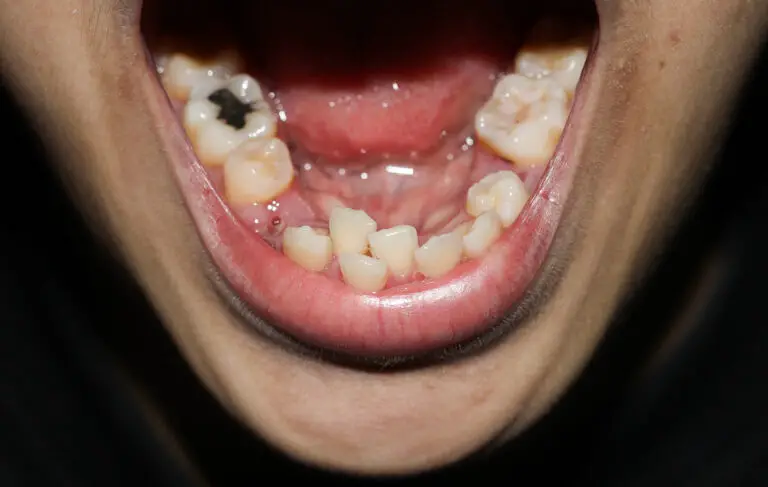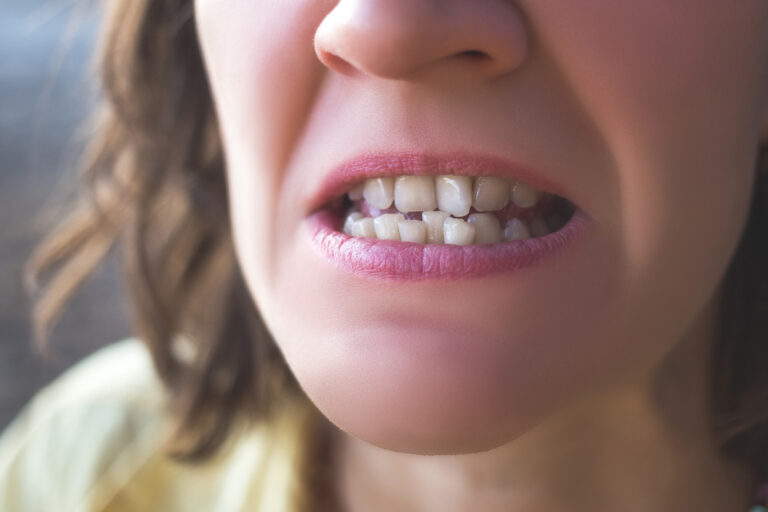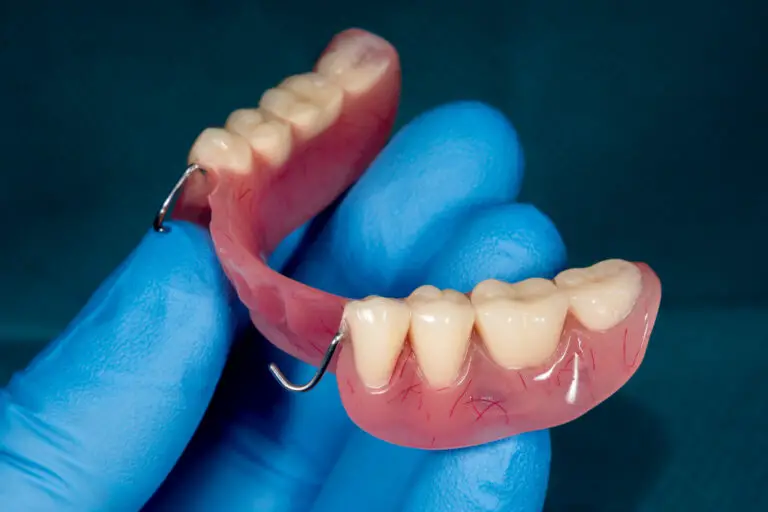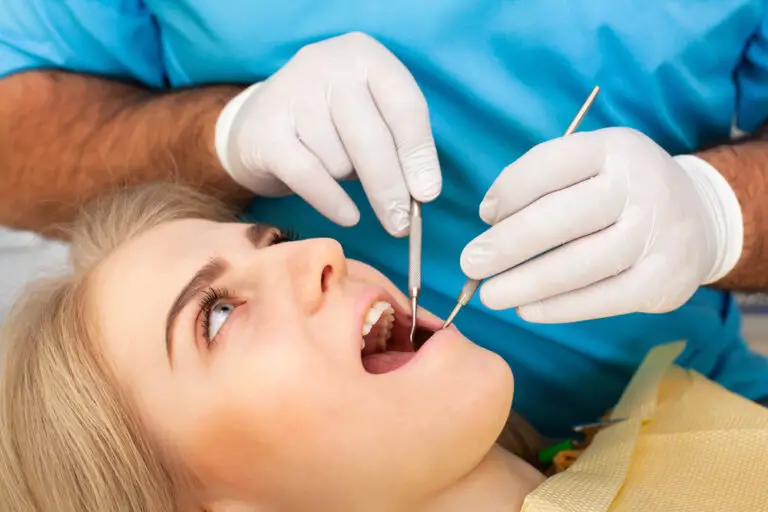Many people experience discomfort or even sharp pain when drinking cold water or other cold beverages. This tooth sensitivity is quite common and can occur for a variety of reasons. The cause is often due to factors that expose the inner layers of the teeth, triggering nerve sensitivity. Understanding the potential causes, symptoms, triggers, and treatments for sensitive teeth can help you properly address the issue.
What Causes Sensitive Teeth?

Teeth have a layered structure, with the outermost enamel protecting the more sensitive dentin and pulp inside. When the enamel erodes or thins, the dentin underneath is more exposed, resulting in pain response to hot, cold, or acidic stimuli. Here are some of the main reasons enamel may wear down, leading to sensitivity:
Loss of Enamel
Enamel is the hard, protective outer layer of the tooth. It can become eroded or worn down over time from factors like:
- Acidic foods and drinks: Acidic things like citrus fruits, tomatoes, vinegar, soda, and wine tend to erode enamel. The acids dissolve the mineral content of enamel.
- Abrasive brushing: Using a hard-bristled toothbrush and brushing aggressively wears down enamel over time. Even some whitening toothpastes are too abrasive.
- Grinding and clenching: Habitually grinding or clenching teeth, especially at night, gradually wears down enamel. This is called bruxism.
- Genetics: Some people naturally have thinner enamel layers or weaker enamel that chips more easily. This makes them more prone to sensitivity issues.
As enamel wears away, the softer, more porous dentin underneath is exposed. Dentin contains thousands of microscopic tubules leading to the nerve of the tooth. External stimuli entering these tubules is what triggers painful nerve sensations.
Gum Recession
Gum disease causes inflammation and infection of the gums, known as gingivitis. In advanced cases, it progresses to periodontitis, causing gums to recede and pull away from the teeth. This exposes more of the tooth roots and dentin, making teeth extremely sensitive.
Cracks or Holes
Cracks or holes in the enamel allow cold liquid and air to penetrate to the inner layers of the teeth, reaching the nerve and causing sharp pain. Cracks can form from injury, habitual teeth grinding, or advanced gum disease. Holes, also called caries or cavities, occur from untreated tooth decay.
Tooth Misalignment
Teeth that are crooked, crowded, or have improper bites may chip or erode more easily. Gaps between teeth also allow sensitivity-causing stimuli to reach the dentin. Orthodontic braces can sometimes cause temporary sensitivity as they expose more of the tooth surfaces.
Dental Procedures
Dental treatments like fillings, crowns, whitening, or tooth extractions can involve enamel removal that leads to sensitivity afterward. Normally this subsides within a few weeks as the teeth recover.
Common Triggers for Sensitive Teeth
While hot, cold, sweet, and sour foods are common causes of pain, anything that exposes the dentin can irritate nerve endings and trigger sensitivity. Some common culprits include:
- Ice water, ice cubes, or very cold beverages
- Frozen treats like ice cream, popsicles, slushies, and milkshakes
- Hot drinks like freshly brewed coffee or hot tea
- Carbonated beverages like soda, sparkling water, and beer
- Citrus fruits such as oranges, lemons, limes, and grapefruit
- Tomatoes, tomato sauce, salsa, pizza sauce
- Vinegar and pickled foods
- Sour candy, warheads, sweet tarts
- Chocolate and caramel
- Hard candies and mints
- Sweet wines
- Baked goods with sour fruits like berries, pineapple, or citrus
- Sticky foods like dried fruit or chewy candies
The main mechanisms are that very hot or cold temperatures cause fluid movements in the dentinal tubules, stimulating nerve pain. Sugary and acidic foods and drinks also seep through exposed dentin into the tubules.
When to See a Dentist

Occasional mild sensitivity that only lasts a short time may not require professional dental attention. But you should make an appointment with your dentist promptly if:
- Tooth sensitivity persists longer than 2-3 weeks
- You experience ongoing sensitivity that disrupts daily functions like eating, drinking, and sleeping
- Sensitivity occurs suddenly, without any apparent cause
- Only a single tooth is affected
- Sensitivity is accompanied by other dental symptoms like toothaches, mouth pain, swelling, or bleeding
The dentist can perform a thorough clinical exam to check for dental problems like tooth decay, cracked teeth, or leaky fillings that could be causing your sensitive teeth. They can also determine if gum recession, enamel loss, or alignment issues are contributing factors.
For mild, transient temperature sensitivity, trying some home remedies may provide relief. But it’s a good idea to have it evaluated by your dentist to rule out any underlying dental issues that need treatment.
Home Remedies for Sensitive Teeth
Here are some methods you can try at home to help manage mildly sensitive teeth between dental visits:
Use a Desensitizing Toothpaste
There are many brands of toothpaste formulated specifically for sensitive teeth. Look for ingredients like stannous fluoride, arginine, potassium nitrate, or strontium chloride. These work to block or reduce nerve signals from pain-sensing fibers in the dentin. Using a soft-bristled toothbrush is also wise.
Avoid Food and Drink Triggers
Paying attention to the foods and beverages that seem to make your teeth hurt and limiting them can help reduce pain episodes. Drink cold beverages with a straw directed towards the back of the mouth. Rinsing your mouth with plain water after eating acidic foods is also advisable.
Drink with a Straw
Using a straw helps liquid bypass your front teeth and reduces contact with sensitive surfaces.
Use Dental Wax or Sealants
Applying thin layers of dental wax or sealant on highly sensitive areas can minimize exposure to pain-inducing stimuli. While not a permanent solution, this can provide temporary relief.
Try Teeth Whitening Products
Some people find that using whitening toothpastes, gels, or strips helps strengthen enamel and reduces sensitivity. However, teeth whitening treatments can also sometimes cause temporary sensitivity as a side effect.
Wear a Night Guard
If you grind or clench your teeth, wearing a mouth guard or night guard can prevent wear and tear on enamel, helping to decrease sensitivity. These can be custom made by your dentist or purchased in stores.
Use Fluoride Rinses and Toothpastes
Fluoride helps strengthen enamel and limit sensitivity. Using an ADA-approved fluoride toothpaste and mouth rinse can be beneficial. Your dentist may also be able to apply concentrated fluoride treatments in office.
Professional Treatments for Sensitive Teeth

If you have persistent sensitive teeth that aren’t relieved by home care and over-the-counter products, visiting your dentist is advised. They have access to prescription strength treatments and can determine if there are any underlying dental issues to address. Some professional options include:
- Fluoride varnish/gel – Higher concentration fluoride products applied by the dentist strengthen enamel and limit sensitivity.
- Sealants – Thin coatings bonded to the teeth shield exposed dentin surfaces from external stimuli.
- Fillings or crowns – Treating cavities, cracks, and significant enamel loss helps block sensitivity.
- Root canal – If inflamed nerves are involved, a root canal removes the inner pulp tissue and nerve, completely stopping sensitivity.
- Gum surgery – Procedures to treat gum recession can cover exposed root surfaces with grafted tissue.
- Desensitizing medication – Prescription medications like stannous fluoride, amorphous calcium phosphate, and potassium nitrate help block nerve transmission.
- Lasers – Low intensity lasers applied to the teeth can reduce inflammation and nerve sensitivity.
- Tooth splinting – Stabilizing loose or cracked teeth with dental splints limits movement causing sensitivity.
Tips for Preventing Tooth Sensitivity
Practicing excellent oral hygiene and limiting enamel erosion are key to preventing sensitive teeth. Try these proactive habits:
- Brush teeth gently 2x per day with soft brush and fluoride toothpaste
- Floss at least once daily
- Rinse mouth after eating acidic foods
- Drink acidic drinks quickly and use a straw
- Use enamel-fortifying toothpaste with calcium and phosphate
- Limit teeth grinding by managing stress and wearing a mouth guard
- Get professional cleanings and exams every 6 months
- Avoid nail-biting, teeth clenching, and hard chewing motions
- Consider sealants to protect enamel from decay
Visiting your dentist regularly allows them to detect and treat early signs of enamel loss, gum disease, cavities, and cracks before they progress and cause sensitivity. Using dental products with desensitizing ingredients can also help strengthen and shield teeth.
When to Worry About Sensitive Teeth

While minor temperature sensitivity that quickly resolves is common and normal, you should make a dental appointment right away if you experience:
- Persistent sensitivity lasting more than 2 weeks
- Lingering pain or sensitivity that disrupts sleeping, eating, or drinking
- Sudden sensitivity without an apparent cause
- Sensitivity isolated to just one tooth
- Sensitivity accompanied by other symptoms like mouth pain or swelling
Severe, ongoing sensitivity can signify issues like tooth decay, infection, or nerve damage needing prompt dental treatment. Addressing it quickly improves outcomes and comfort.
Frequently Asked Questions
Why are my teeth sensitive to cold but not hot?
Cold sensitivity is most common because temperature shifts cause fluid movements in the dentinal tubules that activate nerve signals. The variations in hot temperatures produce minimal fluid changes, so are less likely to stimulate nerves and pain.
Can sensitive teeth ever be cured?
There is no permanent “cure” for sensitive teeth. However, symptoms can be managed through diligent oral hygiene, desensitizing treatments, and avoiding triggers. Properly caring for your teeth prevents worsening of sensitivity over time.
Do sensitive teeth automatically mean I have tooth decay?
Not necessarily. While dental caries can contribute to sensitivity, many other factors like receding gums, enamel erosion, cracks, and orthodontics are often to blame. It’s best to have your dentist examine your mouth to determine the exact cause.
Can I prevent my teeth from becoming sensitive?
Yes, practicing excellent oral hygiene and limiting enamel erosion from acidic foods or overzealous brushing will help prevent sensitive teeth. Using a soft brush, fluoride toothpaste, flossing, dental sealants, mouth guards, and having regular dental cleanings also protects teeth.
What kind of toothpaste works best for sensitive teeth?
Look for toothpastes containing desensitizing ingredients like stannous fluoride, potassium nitrate, arginine, or strontium chloride. Colgate, Sensodyne, and Crest make popular sensitivity toothpastes. Using a soft bristled brush is also wise.






